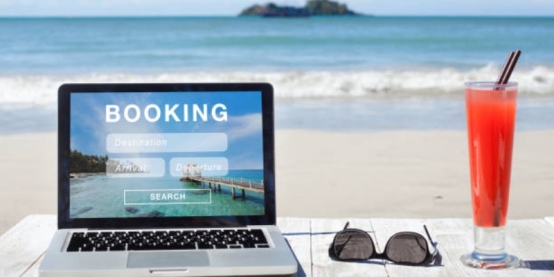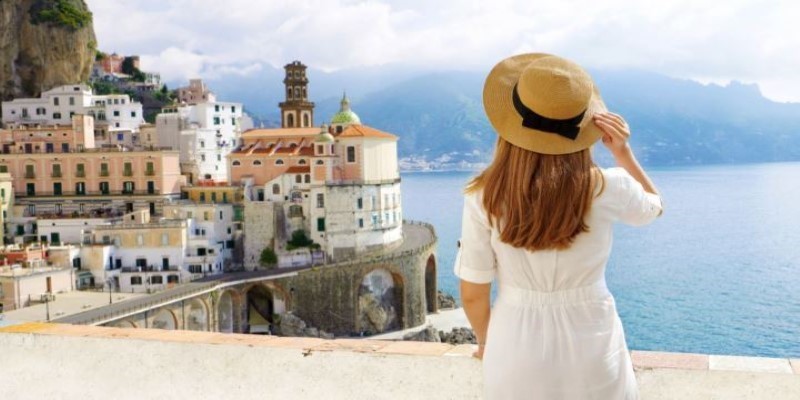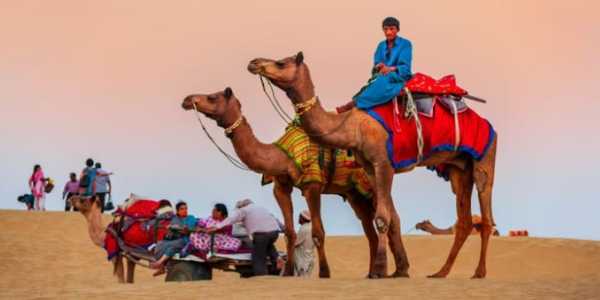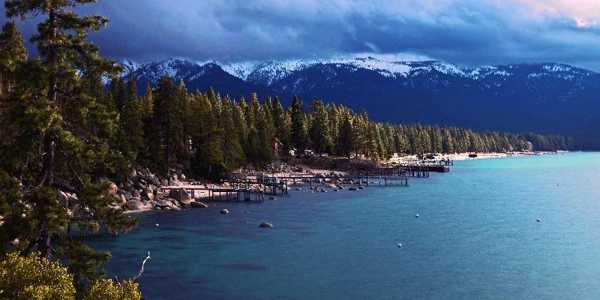How Early Should You Book Tours During Peak Travel Seasons?
Travel during peak seasons is no joke. Imagine dreaming for years about seeing the Eiffel Tower, only to arrive and realise every guided tour is sold out. Or paying double the price for a ticket that could have been cheaper if booked earlier. That's why timing is everything when booking tours during the busiest times of year.
This guide breaks down exactly how far in advance to book tours, why timing matters, and the risks of waiting too long. From food tours in Rome to multi-day safaris in Africa, every traveller will find practical advice here to avoid disappointment and secure unforgettable experiences.
Table of Contents
Why Timing Is Crucial During Peak Travel Seasons
Factors That Affect How Early You Should Book
Recommended Booking Timelines (By Tour Type)
Exceptional Cases Where Booking Extra Early Is Essential
Risks of Waiting Too Long
Tips for Securing Tours During Peak Seasons
What If You Missed the Early Booking? (Last-Minute Options)
Key Takeaway for Travellers
Why Timing Is Crucial During Peak Travel Seasons
Peak travel seasons are defined by high demand. Families on school breaks, holiday travellers, and event seekers crowd popular destinations, making availability scarce.

Rising demand and limited availability: Tours with fixed daily capacity—like museum entries or guided day trips—sell out quickly.
Impact of last-minute booking: Delaying reservations often leads to inflated costs and reduced options. Travellers may end up with odd time slots or secondary operators.
Popular tours disappear first: Tickets for icons like the Vatican, Eiffel Tower, or Alhambra are among the first to go. Similarly, adventure tours and food tours fill up months ahead.
In short, peak travel booking is about competition. The earlier the booking, the better the odds of securing both a seat and a fair price.
Factors That Affect How Early You Should Book
Not every tour follows the same rules. Several factors influence just how far ahead travellers should secure their spot.
Destination Popularity
World-famous cities like Paris, Rome, and Tokyo attract millions annually. Their top tours require early planning. By contrast, smaller towns or rural areas often allow more flexibility.
Type of Tour
A museum ticket is different from a 7-day adventure trek. Walking tours may have more daily slots, while exclusive cultural events could run only once a year.
Season and Events
Christmas markets in Europe, cherry blossoms in Japan, or summer vacations in the U.S. create massive demand spikes. During these periods, procrastination is costly.
Tour Size and Exclusivity
Small-group and private tours offer limited capacity. A cooking class with 10 seats or a canyon hike with restricted entry often fills up much faster than a bus tour with 50 spots.
These variables determine the lead time. Understanding them helps avoid misjudging the demand curve.
Recommended Booking Timelines (By Tour Type)
The best way to secure tours during peak seasons is to follow tested timelines. Here’s how far in advance different categories should be booked:
City Walking Tours and Food Tours
Best to book 3–6 weeks in advance.
These tours operate regularly but attract both tourists and locals, so they fill quickly in popular neighbourhoods.
Museum and Attraction Tickets
Secure tickets 1–3 months in advance.
High-demand sites like the Vatican Museums, the Eiffel Tower, and the Alhambra often sell out entirely weeks ahead.
Many institutions now require timed-entry reservations, limiting spontaneous visits.
Day Trips from Major Cities
Reserve 2–4 months in advance.
Trips such as Paris to Versailles, Naples to Pompeii, or New York to Niagara Falls attract crowds year-round. Tour operators reduce availability when demand spikes.
Adventure Tours
Plan 4–6 months in advance.
Safaris, trekking expeditions, or scuba diving trips rely on small groups, seasonal weather, and limited guides. Booking ensures both safety and access.

Multi-Day Guided Tours and Cruises
Book 6–12 months in advance.
These packages involve logistics, accommodation, and limited departures. Early reservations lock in better cabins, schedules, and sometimes lower pricing.
By following these timelines, travellers maximise both availability and value.
Exceptional Cases Where Booking Extra Early Is Essential
Some experiences cannot be left to chance. For these, early booking isn’t just smart—it’s necessary.
Seasonal Festivals
Events like Oktoberfest in Munich, Carnival in Rio, or Japan’s cherry blossom tours draw global crowds. Bookings should happen 6–12 months before travel.
Limited-Entry Sites
Machu Picchu in Peru caps daily visitors.
The Galápagos Islands limit ecological impact through strict permits.
Antelope Canyon in Arizona restricts daily access to protect its fragile environment. In all cases, tickets sell out months ahead.
Holiday Seasons
Christmas, New Year, and Easter week consistently push demand beyond capacity. Tours for these periods require firm bookings at least 6 months in advance.
Missing these deadlines almost guarantees disappointment or inflated prices.
Risks of Waiting Too Long
The consequences of waiting until the last minute are well-documented.
Sold-out tours: Popular attractions often close booking weeks in advance during peak times.
Price surges: Many operators raise prices closer to departure as availability shrinks.
Limited departure times: Late planners may be stuck with inconvenient hours, like early mornings or late evenings.
Settling for lower quality: Last-minute travellers may only find availability with lesser-known operators lacking strong reviews or reputations.
Procrastination not only costs money but can also compromise the entire travel experience.
Tips for Securing Tours During Peak Seasons
Early action is the foundation of peak travel success—still, strategy matters.
Book as soon as flights and hotels are confirmed: Lock in tours immediately after securing core travel logistics.
Use official websites and trusted platforms: Reliable platforms like Viator, GetYourGuide, and Klook ensure legitimate reservations.
Join waitlists and set alerts: Some operators release extra slots or cancellations.
Look for refundable or flexible bookings: Protects against unexpected schedule changes.
Consider off-peak hours: Choosing early morning or late evening slots increases availability and often provides a less crowded experience.
These strategies reduce Stress and safeguard against missed opportunities.
What If You Missed the Early Booking? (Last-Minute Options)
Even with preparation, plans sometimes slip. All hope isn’t lost for late planners.
Walk-In Chances
Some large-group tours hold limited walk-up availability. These are rare during peak season but possible for less exclusive attractions.
Hotel Concierge and Local Agencies
Hotels often have networks with local tour companies. A concierge may secure last-minute seats not available online.

Alternative Tours or Time Slots
If a primary tour is unavailable, consider nearby alternatives. A less famous museum, a different food tour, or an evening instead of a midday slot can still provide memorable experiences.
Free Walking Tours
Many cities offer community-based walking tours. While less structured, they can serve as an engaging backup.
Late booking often requires flexibility, but with resourcefulness, travellers can still enjoy rich experiences.
Key Takeaway for Travellers
The golden rule is simple: the earlier, the better. For most tours, aim to book 1–3 months in advance. For adventure tours, seasonal events, or multi-day guided trips, think 6–12 months ahead.
Booking early secures better prices, wider choices, and higher-quality experiences. Waiting too long risks higher costs, limited options, and missed opportunities.
Travel is about creating memories, not regrets. Timing the reservation right ensures peak travel seasons bring joy instead of frustration.
Sources
Was this helpful? Share your thoughts
- Learned practical methods
- Solved my questions
- Inspired new ideas
- The World's Best Solo Female Travel Destinations Revealed 2025
-
Traveling alone as a woman is no longer unusual—it’s one of the fastest-growing trends in tourism. More women are planning trips that give them independence, cultural experiences, and safety without compromise. If you’re searching for where to go in 2025, here’s a guide to the best solo female travel destinations, with details on costs, safety, highlights, and how to make the most of your trip.
Explore More
-
![Spooky & Fun: 26 Best Halloween Travel Destinations You Can’t Miss]() Spooky & Fun: 26 Best Halloween Travel Destinations You Can’t Miss
Spooky & Fun: 26 Best Halloween Travel Destinations You Can’t Miss -
Bored of the same trick-or-treating streets? Halloween travel destinations are calling, offering eerie towns, haunted trails, and spine-chilling theme park thrills. Step beyond routine and dive into a season where every destination promises a new kind of fright and wonder.
Explore More





